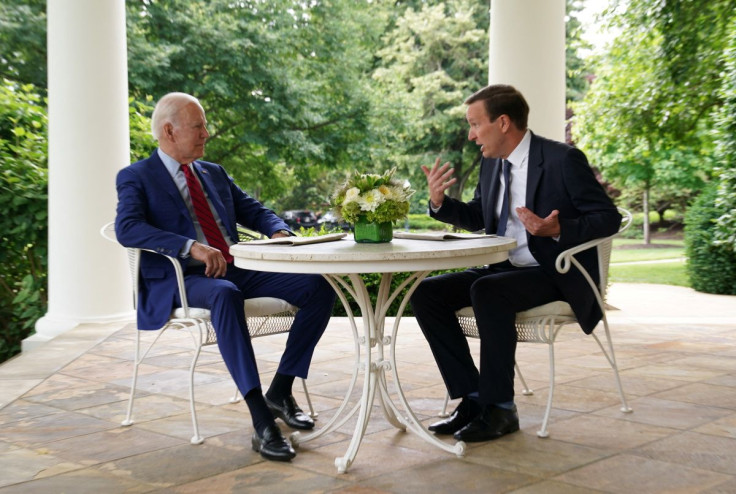Democratic, Republican Lawmakers Push To Maintain Momentum In U.S. Senate Gun Talks

A rare bipartisan effort in the U.S. Senate to agree on legislation to address a wave of mass shootings could reach a watershed moment on Thursday as lawmakers decide whether the drive has enough momentum to succeed.
About a dozen lawmakers led by Democratic Senator Chris Murphy and Republican Senator John Cornyn are trying to find common ground on a plan that would bolster school security, address gaps in the U.S. mental health system and keep guns out of the hands of criminals and individuals deemed to be a danger to the public or themselves.
Lawmakers including Senate Majority Leader Chuck Schumer and his Republican counterpart, Mitch McConnell, had expressed hope for an agreement by the end of the week.
Negotiators and aides said there was a chance of reaching an agreement in principle. But short of that, lawmakers would have a clearer sense of the scope for further discussions before leaving Washington on Thursday for the weekend.
"We'll have a much better idea tomorrow morning," Cornyn told reporters on Wednesday. "We'll have a better idea of whether we still have momentum, which I believe we do right now."
Murphy told reporters that his aim was to pass legislation that can stem the tide of shooting deaths in America before the Senate breaks for the July 4 holiday at the end of the month. "This would be a big, historic deal, and we need to get it right," he said.
The effort follows recent mass shootings in Buffalo, New York; Uvalde, Texas; Tulsa, Oklahoma; and elsewhere.
Democrats including President Joe Biden have called for new limits on gun ownership, including a ban on semi-automatic, assault-style rifles and high-capacity magazines, and for raising the minimum age to buy those weapons from 18 to 21.
Late on Wednesday, the Democratic-controlled House of Representatives voted largely along party lines to approve a sweeping gun-control package.
But that legislation has no chance of clearing the Senate, which is evenly divided between Democrats and Republicans. As a party, Republicans consistently defend gun ownership rights.
Instead, lawmakers there are considering relatively modest changes that could attract the 60 votes needed for passage in the 100-seat chamber.
Talks on bolstering mental health assistance and incentivizing state "red flag" laws to keep guns from disturbed individuals have turned to the question of how to provide potentially billions of dollars in funding without increasing the federal deficit.
Lawmakers are also discussing provisions to enhance the physical security of schools, including more on-campus security officers, and proposals to add juvenile records to national background check databases.
© Copyright Thomson Reuters {{Year}}. All rights reserved.





















